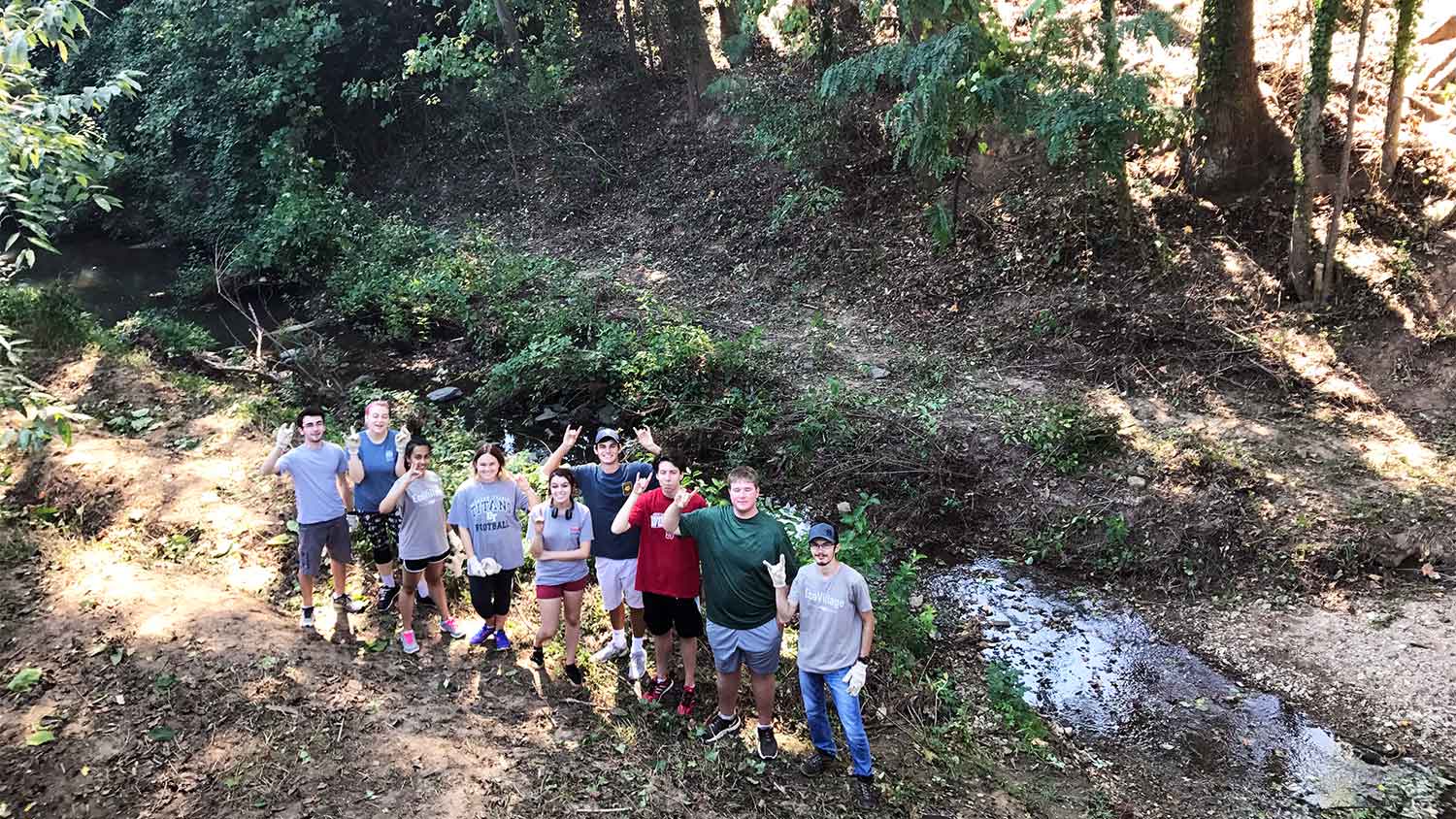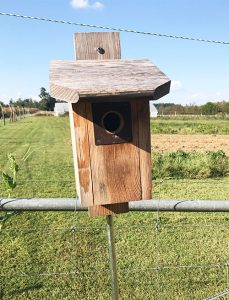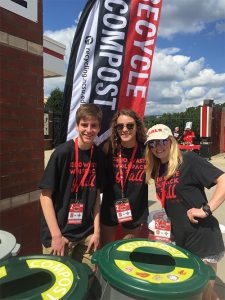Learning By Doing

Through Service Learning, EcoVillage Students Make Campus More Eco-Friendly
Before coming to NC State, student Joe Endrws had never touched a power saw. Now, the wooden birdhouse he built during his first few weeks on campus is helping attract birds and deter insects at a university farm.
Not bad for your first woodworking project.
Endrws is among 89 students who participated in the first-year course for residents of EcoVillage, NC State’s sustainability-focused living and learning community. During this 8-week class, students learn about sustainability in the classroom and ‒ for the first time this semester ‒ through sustainability-related service including building birdhouses, garden beds, removing invasive plant species and managing compost collection.
“I want EcoVillage students to have the opportunity to apply what they are learning in class to real-world sustainability projects,” said Meghan Teten, EcoVillage director. “They get to work with campus partners on these projects, which is good practice for their future careers, and they get to reflect on their experiences, which reinforces their connections to sustainability.”
Stronger Roots For A Campus Farm

Endrws’ birdhouse was one of many that EcoVillage students constructed specifically to attract bluebirds and barn swallows, two bird species known for eating insects that might otherwise affect crop production at NC State’s Agroecology Education Farm.
Because the farm, which grows produce for university dining halls, utilizes organic growing techniques, pesticides aren’t an option for controlling insects. Providing habitat for birds is one strategy in the farm’s plan for integrated pest management, which focuses on the long-term prevention of pests while minimizing risks to people and the ecosystem.
“I learned that sustainability goes beyond energy sources and pollution and can extend to the simplest things, such as keeping unwanted pests away from crops,” said student Lauren Crawford, who is majoring in electrical engineering.
Students also helped the farm by building a raised garden bed for herbs, creating marketing materials, installing snake guards on birdhouses to limit bird predators and developing a maintenance guide for vermicomposting bins.
Bye-bye, Invasive Plants
Other students in the class collaborated with Grounds Services to remove invasive plant species along Rocky Branch Creek, a waterway that cuts through NC State’s central campus. After removing invasive species such as Japanese Stilt Grass, Chinese Privet, Japanese Privet, Porcelain Berry and Princess Tree, the students restored the area with native species including Flowering Dogwood, Redbud, Azalea, Elderberry, Silky Dogwood, Silky Willow and Junkus.
“I love problem solving and getting my hands dirty. Now every time I go across Dan Allen [Drive] and see that empty spot [where invasive plants used to be], I know I was part of making that better,” said Devin Kehoe, a first-year student majoring in environmental technology and management.
Reducing Food Waste

Another group of students in the course assisted with campus initiatives related to food waste. Students volunteered for Feed the Pack campus food pantry and the Food Recovery Network, which diverts leftovers from dining halls to local nonprofits serving the homeless. Additionally, students managed compost collection during the Sept. 16 home football game.
As the course’s final project, students worked with NCSU Libraries’ staff to create multimedia presentations about their service learning experiences and what they learned about sustainability.
“I’ve learned just how much must be taken into account when considering sustainable solutions to environmental problems,” said Ashley Peavler, a first-year student in the College of Sciences. “Not only does one need to examine the immediate environmental effects a certain action may have, but they also must consider how this will affect society, as a whole, years down the road.”
Learn more about the course projects and access final presentations on the EcoVillage website.